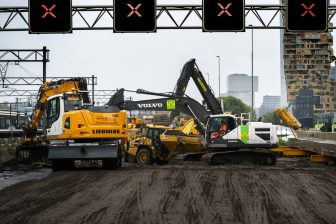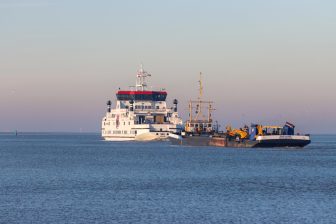EP supports congestion charges and road-pricing
Brussels, Belgium – Parliament adopted an own-initiative report on sustainable European transport policy, which says that the problem of urban congestion, which causes 40% of CO2 emissions and 70% of other pollutant emissions from vehicles, needs to be tackled more ambitiously, by applying a Europe-wide cooperation and coordination strategy. MEPs say better exploitation of existing infrastructure, especially by means of demand management measures such as congestion charges and road pricing is needed.
The European Parliament estimates that urban traffic generates 40% of CO2 emissions and 70% of other pollutant emissions from vehicles and whereas road congestion, concentrated mainly in the big cities, entails a cost to the EU equivalent to about 1% of GDP.
The report was adopted with 539 votes in favour, 78 against and 25 abstentions.
Working from home, carpooling and car-sharing suggested
Parliament is of the opinion that an effective urban mobility policy should take into account the transport of persons as well as of freight and must therefore be based on as fully integrated an approach as possible, bringing together the solutions best suited to each individual problem.
The House firmly believes that urban areas have economically sound potential to offer for further modal shift policies in favour of public transport, walking, and cycling and for a new approach to urban logistics.
MEPs consider it essential in this connection to focus on technological innovation (wider use of (ITS’s)), better exploitation of existing infrastructure, especially by means of demand management measures (congestion charges and road pricing), and innovative solutions for the optimum integration of urban freight flows; and, lastly, new ways to optimise the use of private cars such as car-sharing, carpooling and arrangements for working at home.
To achieve the aim of making European transport sustainable in energy and environmental terms, MEPs consider it necessary to combine different policies with the involvement of more and more stakeholders representing the transport sector, government and citizens. This combination of measures should encompass the following in particular:
(a) technological developments (measures to increase energy efficiency; new standards/regulations for engines and fuels, use of new technologies and alternative fuels);
(b) market-based instruments (charges/fares based on environmental impact or congestion, tax incentives, Emissions Trading Scheme (ETS) allowing for the specific features of the different modes of transport); and
(c) flanking measures to enable means of transport and infrastructure to be used as efficiently as possible.
The report maintains that the EU and the Member States need to focus their efforts on the key elements of the system, namely congested large cities and urban areas, the main European intercity corridors and environmentally sensitive areas.
The Council and the Member States are called upon to step up their investment in infrastructure and Intelligent Transport Systems (ITSs), in particular with a view to:
(a) completing the trans-European network priority projects as soon as possible;
(b) tackling congestion in urban areas and along corridors in sensitive areas; and
(c) improving intermodal transport.
MEPs urge the Commission to submit by June 2008 at the latest, a comprehensible, transparent, generally applicable model for assessing the external costs of all modes of transport, on which to base future calculation of the charges to be paid for the use of infrastructure.
Rail transport: emphasising that this is the mode of transport which consumes the least energy and produces the lowest level of CO2 emissions, MEPs call on the Commission, the Member States, and the rail industry to:
(a) complete a single European railway area or rail market as soon as possible;
(b) with that end in view, eliminate the technical obstacles and move towards a single European Rail Traffic Management System (ERTMS) and interoperable solutions; and
(c) improve freight and passenger transport services and the quality of service.
Civil aviation: although airlines have cut their fuel consumption per passenger-kilometre in the last ten years, the overall environmental impact of civil aviation has risen on account of the substantial expansion in traffic. Therefore, MEPs call for:
(a) air transport to be included in the ETS;
(b) emissions-based differential take-off and landing charges at airports;
(c) the establishment of the’Clean Sky a Joint Technology Initiative’ that aims at reducing CO2 and NOx emissions and noise pollution;
(d) the creation of a real Single European Sky;
(e) practical steps to relieve airport congestion; and
(f) the improvement of access to airports by rail.
Shipping: given the fact that emissions from shipping are continuing to increase, the report recommends that:
(a) CO2, SO2, nitrogen oxide, and other emissions from ships be reduced;
(b) the use of renewable energy sources such as solar and wind power be encouraged;
(c) vessels that come to anchor be fuelled from land-based sources;
(d) the use of emission allowance trading to contain emissions be treated as a possibility deserving careful consideration;
(e) an integrated European rivers policy be agreed.
Finally, MEPs stress that the transport sector must also meet the EU goals of reducing oil consumption and greenhouse gas emissions by at least 20% over 1990 levels by 2020.
REF.: 20080307IPR23284




